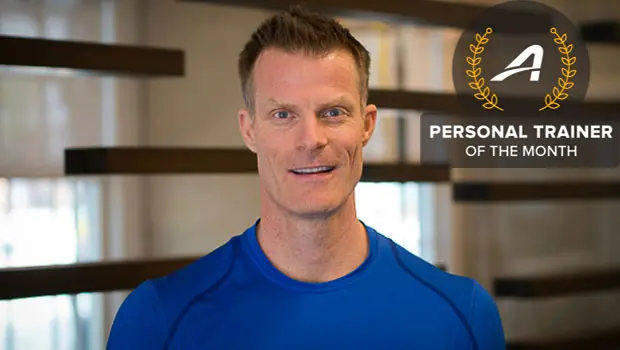
This article is part of a monthly series on ACTIVE.com. If you'd like to be featured as the ACTIVE Personal Trainer of the Month, contact hunter.hewitt@activenetwork.com for consideration.
It was time for a change for Alan Gulledge.
Though he was enjoying success in the sales world, he knew it wasn't his passion. The health and fitness industry was where he wanted to be.
Gulledge is now the owner of TriFit Evolution, a personal training and multi-sport coaching company. He specializes in correcting muscle imbalances and improving fitness and performance—not only for competitive athletes, but for weekend warriors, too.
As a former NCAA Division I pole-vaulter who has also completed several triathlons and road races, Gulledge focuses heavily on functional fitness with his clients because it has led to personal success. He suffered a broken neck, back and ribs in a serious cycling accident in 2015, and was lifting, running, swimming and riding pain-free less than seven months later.
Gulledge says his speedy recovery was "largely due to my high level of functional fitness going into the accident, and the self-prescribed fitness routine since."
For his dedication to creating a healthier community, Gulledge is ACTIVE's Personal Trainer of the Month for April 2016.
Education and Certifications
- B.S. - Psychology (Brigham Young University)
- MBA - Marketing (Keller Graduate School)
- Certified Personal Trainer (NASM)
- Fitness Nutrition Specialist (NASM)
- USA Triathlon Level 1 Coach
- USA Track and Field Level 1 Coach
Over the years, Gulledge has spent countless hours influencing clients as a personal trainer and coach. Here are five health tips he preaches daily.
1. Prioritize Your Fitness
One of the most common reasons people fail to stay healthy is what they consider a lack of time. Gulledge challenges clients to leave this excuse behind.
"Prioritize your workouts like you would a business meeting," he says. "Schedule your workouts a few days in advance and plan other priorities around them. You wouldn't take a personal call during a business meeting, so don't allow other distractions or priorities crowd out your fitness."
2. Endurance Athletes Need to Strength Train
For years, many runners, cyclists and triathletes have believed the myth that strength training will slow them down.
"The very nature of endurance athletics demands repetition," Gulledge says. "Repetitive movements can lead to muscle imbalances and injury. By correcting those imbalances with the proper strength training regimen, not only do athletes reduce the risk for injury, but they can also improve their performance."
Adds Gulledge: "What endurance athlete DOESN'T want to go faster while staying healthy?!"


